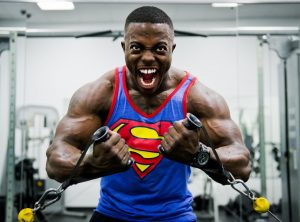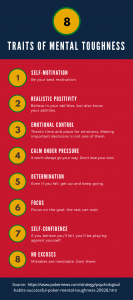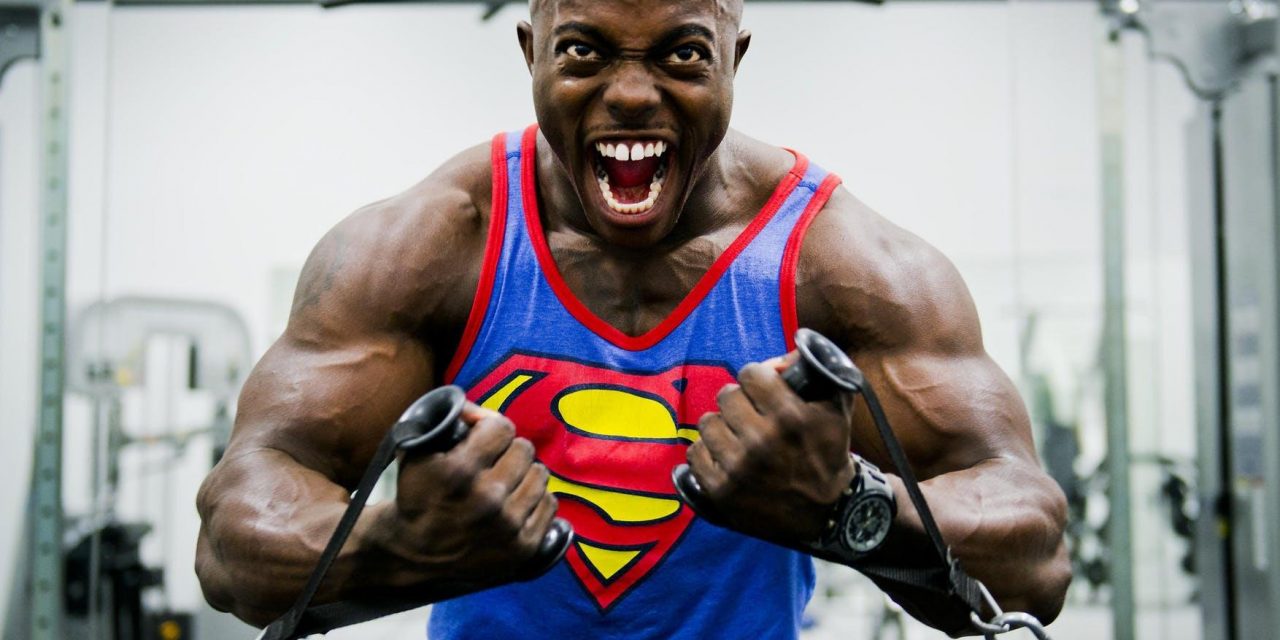
Image Credit: Pixabay
When watching a game, be it from the NFL, NBA or NHL, we can’t help but marvel at the physical specimens that are clashing before our eyes. The years spent in heavy training, fine-tuning every muscle of the body, building monumental endurance and strength protrude from every fiber of pro athletes’ bodies.
But in seeing these physical characteristics, it’s easy to forget that the real battle, the preparation, goes unnoticed because it happens “behind closed doors” — in one’s mind. And how about those who play mind sports like poker? Are there any commonalities between the two types of players? Let’s find out.
It’s All in the Mind

Image Credit: Pexels
Caption: Athletes face two battles: against themselves and against their opponents.
So, what is it that pro athletes need to overcome to take the coveted win? Sports psychologist Jim Taylor, Ph.D., who works with top endurance athletes, published an interview in Psychology Today where he identifies the mental response to physical breakdown as the decisive moment between reaching the goal line and dropping out. In other words, if athletes win their personal battle and keep pushing against physical exhaustion, then they’ll be competitive.
Of course, waiving off the body signals that are yelling “Stop!” is not a simple feat, and it can be outright dangerous for amateur athletes who don’t have the physical foundations that allow them to push themselves to the limit. It’s the reason pro athletes are so revered — they go where “ordinary” people physically and mentally can’t. So, what can we do to achieve a pro-athlete cognition and physique?
Unsurprisingly, there’s no one answer, which is probably why many people prefer to stay in bad shape — they are looking for a magic formula that doesn’t exist. “Personality is rather amorphous quality. […] most of us naturally adopt […] strategies that fit our personality,” says Dr. Taylor. So, to make it through a taxing workout, you need to find what works best for you mind-wise — not what your favorite athlete is doing (though, the two might coincide).
Of course, a win is not guaranteed, and aside from team preferences, it’s quite fascinating to witness one team defeat another one that spent an equally exorbitant amount of effort and money on preparing for a win.
The Alpha Within

Image Credit: Pexels
Caption: Studies suggest that when celebrating a win, players show dominant body language.
Just because mental rigidity is a key component of athletic dominance, it doesn’t mean there’s nothing primal about sports. Another Psychology Today article discusses “The Body Language of Victory,” presenting findings of San Francisco State University’s (SFSU) research on post-win microexpressions.
The study looked at Olympic and Paralympic judo athletes and their physical reactions after winning a match. Protruding chests, clenched fists and heads held high were common among the researched group. These are all physical traits that say, “I’m the alpha.”
It might be logical that such reactions would manifest after a sports duel, but these signs of dominant behavior are also apparent in other, non-combatant sports, such as when a scoring soccer player celebrates with a high jump and fist thrown in the air. What’s more, aggressive postures disregard etiquette. Brief displays of such a stance were present even at golf and tennis competitions — events where athletes are expected to exercise composure even during turbulent times. These dominance-related traits were also apparent in congenitally blind athletes, who couldn’t have learned them by observation.
But David Matsumoto, a Professor of Psychology at SFSU, co-author of the judo study and former U.S. Olympic judo team coach, made another fascinating observation. He states that post-win dominance signs are more subdued in athletes who come from “more egalitarian cultures,” suggesting that primal behavior is not uncontrollable.
A Winner’s Mindset
But psychological triggers are not limited to games that measure physical prowess. They are also present when people put their minds against each other, as is the case with poker. “All great players exhibit something called mental toughness,” writes for pokernews.com Dr. Tricia Cardner, a “former psychology professor turned poker player.”
Dr. Cardner goes on to explain that the mental resilience that professional poker players exhibit in coping with “ups and downs” is something that’s also applicable to other areas of life. She notes that there’s increasing evidence that one’s poker performance and psychological state are interlinked. “Your goal as a player is to create a mentally tough mindset that helps you to perform more consistently no matter what challenges you face,” writes Cardner.
That is consistent with what Dr. Jim Taylor says about his “Power of Prime” training concept. “[…] prime performance, […] I see as very different from the popular goal of peak performance. I define prime performance as performing at a consistently high level under the most challenging conditions.” The two scientists reach the same conclusions albeit one of them speaking about endurance sports, the other about poker.
While it might sound discouraging to hear that to cope with everyday stressors we need to develop the mind of a top athlete or poker player, Dr. Cardner reassures that there are a set of psychological traits that if practiced can increase mental resilience.

Caption: These are the eight traits of mental toughness, according to Dr. Cardner.
Stacking Trophies

Image Credit: Pexels
Caption: Many top athletes practice the art of meditation.
The psychological traits that Dr. Cardner suggests cultivating mental toughness are ingrained in the end goal of a self-developing practice known for centuries, but recently, branded under the name “mindfulness.” WebMD says that “being mindful means paying close attention to what’s happening in the moment.”
Indeed, being aware of one’s environment, both physical and mental, without judgment is what meditation is. Mindfulness, adapted to modern days, is widely practiced as a tool for managing stress, performing under pressure and bringing balance to one’s mental state. There are no set rules about how to practice mindfulness. However, focusing on one’s breathing while noticing bodily and mental sensation seems the most common way.
Science is yet to reach a definitive conclusion about the effectiveness of mindfulness, if possible, but the practice enjoys a fan base even among the major leagues. Kyle Shanahan, the 49ers’ head coach, is one among many of his colleagues who incorporated meditation in their players’ routine. So, too, have many players.
Is athletic greatness inherent or cultivated? Well, the word is still out on this one. What’s for sure is that mental preparedness plays a crucial role in physical training. But does that mean that any person can reach athletic heights by thinking positively? Some believe it’s possible while others say that great athletes are born capable and only polished afterward. In either case, it takes more than brawn to make it to the top of the sports charts.






